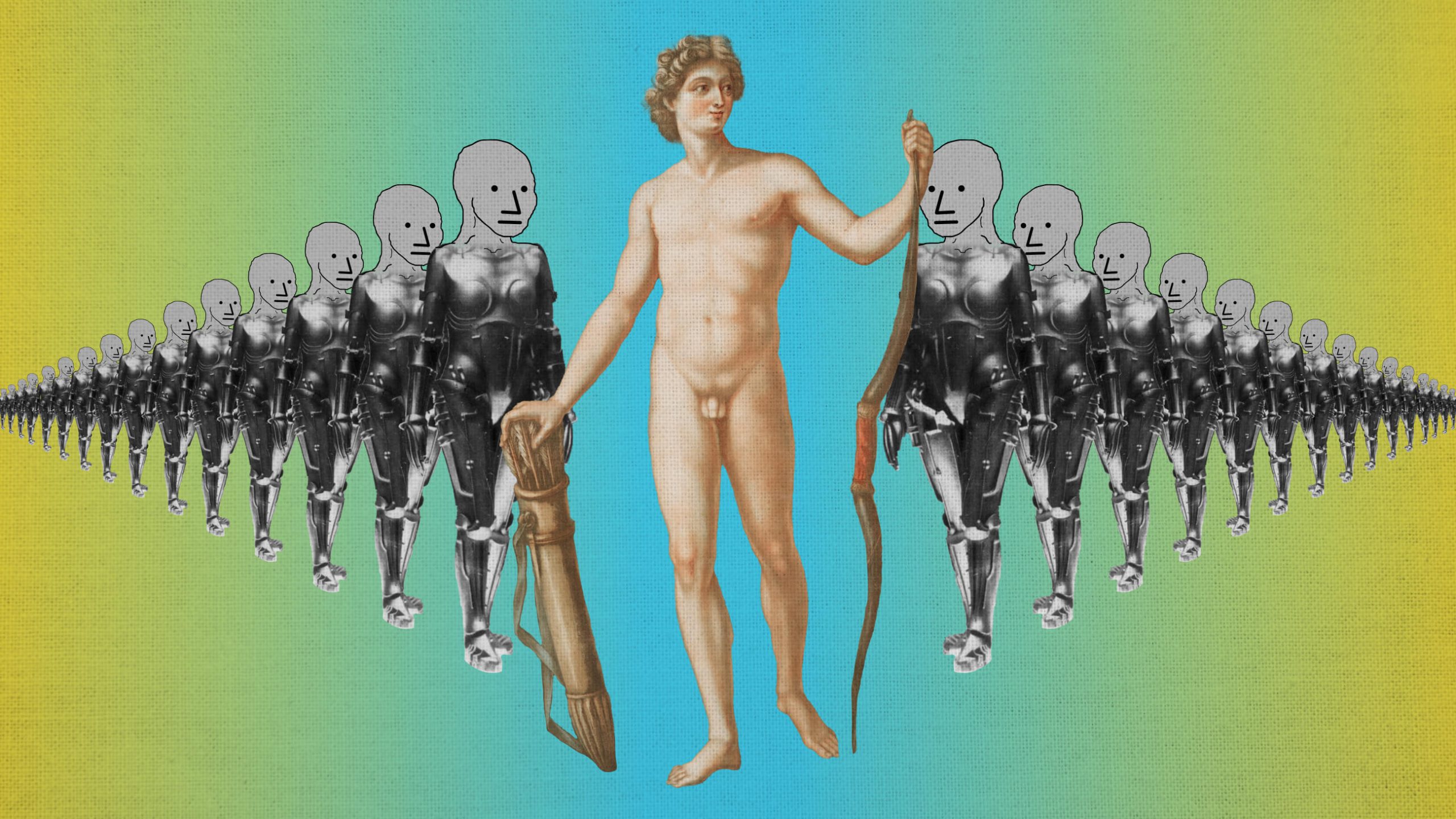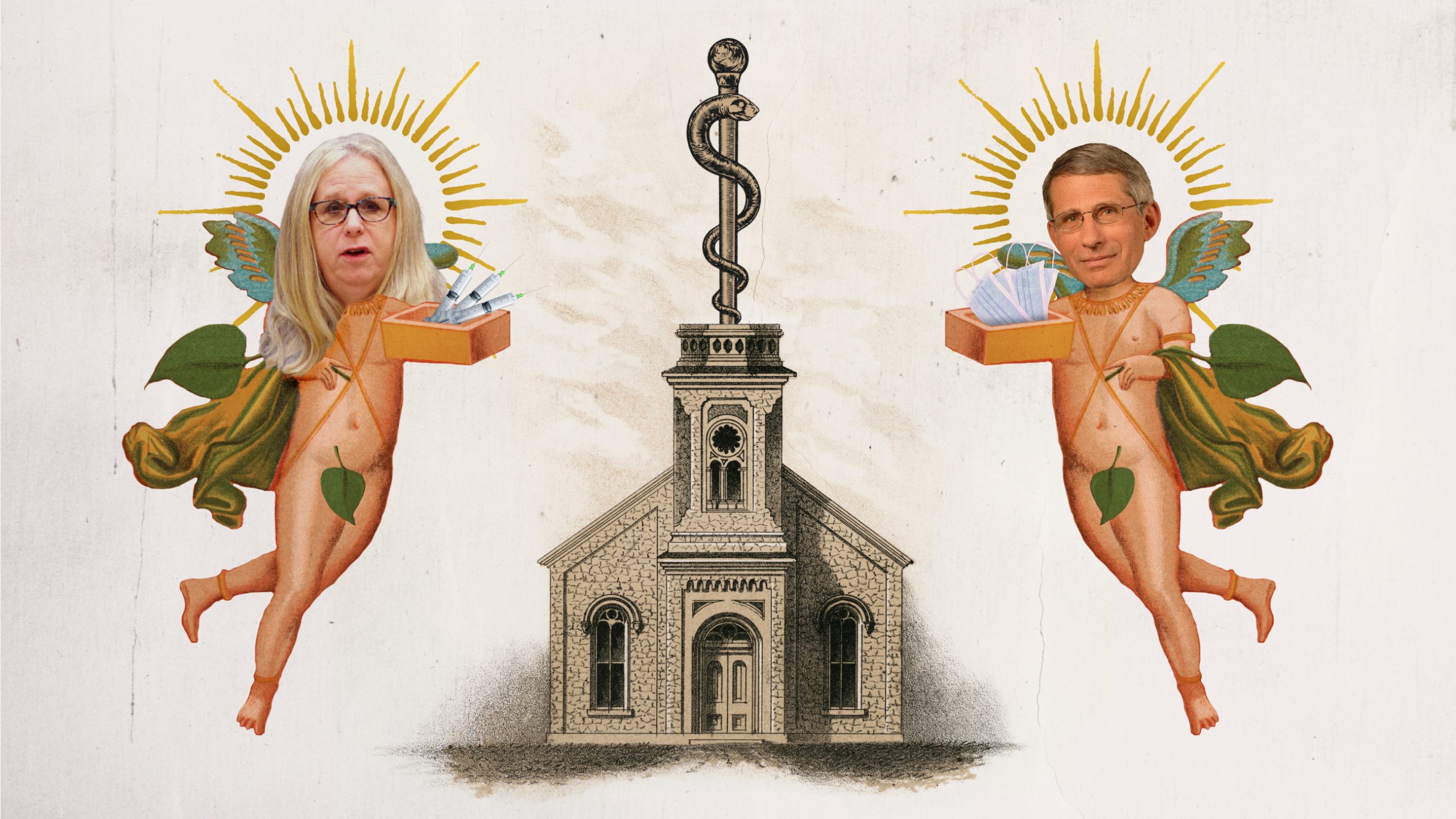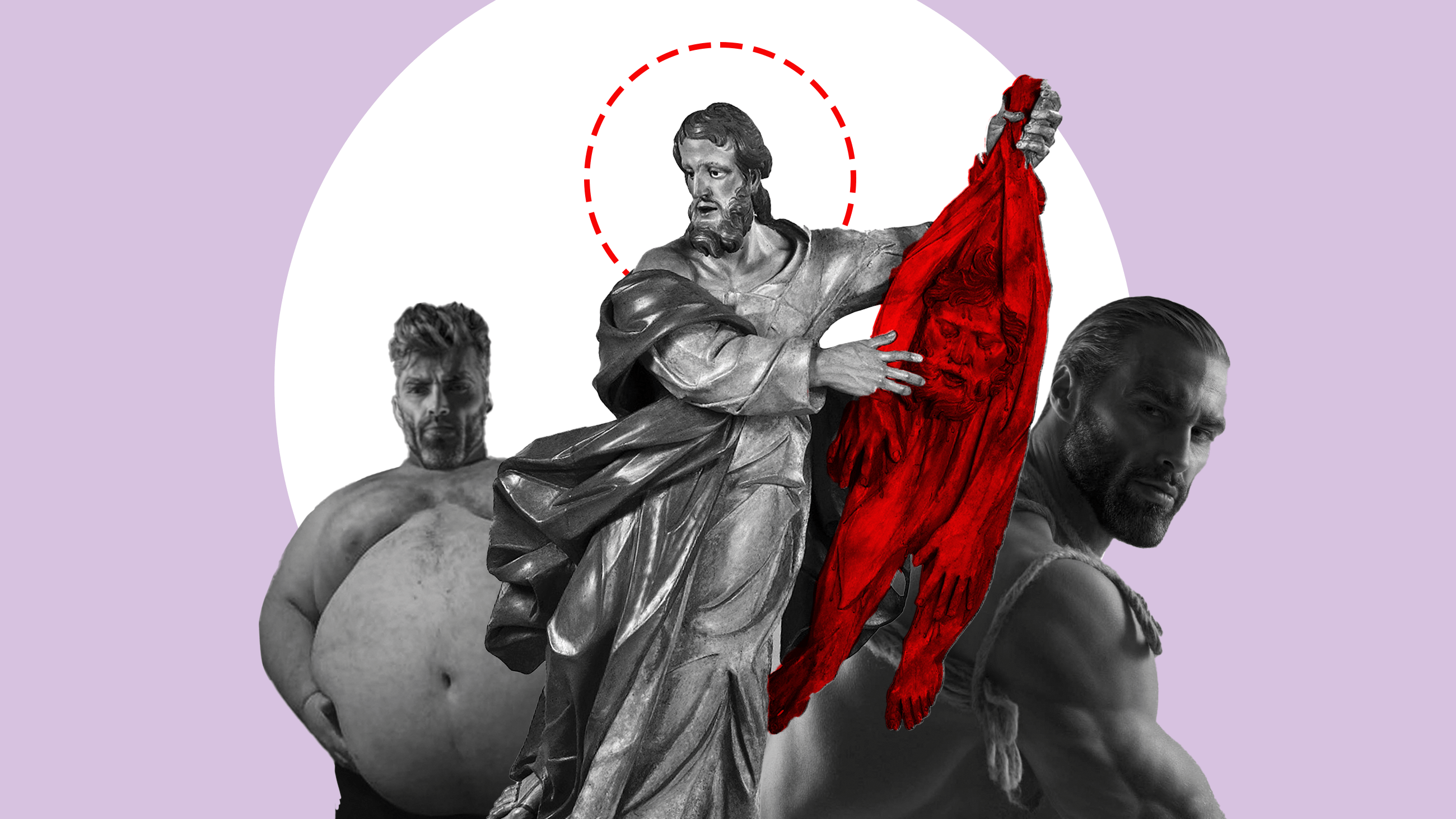The Zombie Enlightenment enslaves us to a new religion.
Discipline the Body, Master the Machines

Our humanity must reassert itself over our technological power.
Anticipating the growing technological complexity and dependence of our times, the Catholic priest and theologian Romano Guardini wrote in the middle of the last century that postmodern man “will have only two choices: to match the greatness of his power with the strength of his humanity, or to surrender his humanity to power and perish.”
Our quest for power over nature, i.e., over the world conceived as mere matter, has been so successful as to put our nature as human beings into question. In his essence man is both a part of and apart from that natural order: while his body obeys the material laws of physics, his soul is under a higher ethical and spiritual law not found in the mere fact of biological life. But much like C.S. Lewis in the Abolition of Man, Guardini worried that the energy directed by technicity can form a power apart from human responsibility, one that treats people as only so much more matter and force to be manipulated.
Industrial society, which consolidated human populations, and then technological society, with its mass media and rational abstractions, produced a world inhabited by homo economicus: interchangeable, autonomous beings to be manipulated or altered at will. This is the era of Mass Man. As part of the mass, the human is absorbed by the machine. Not just mechanical technology, but also modern bureaucratic legal systems, markets, and digital information, were all initially created to extend humanity’s knowledge of and power over creation’s energies. But these forces have now compounded to create a barrier between ourselves and the fundamental phenomena of life.
Not only the consumerist many, but even the elite few, have been reduced to a mass. Our elites, in an intellectually taxing system of increasing complexity, are those given a mind more capable of not only recognizing but imitating machinery, conforming to its rules and rhythms, submitting to its pattern of life. Of course men such as Zuckerberg and Bezos have been lucky, but they are technocrats, too. That word is not an accident.
That we now so readily treat human beings as objects, to be measured, calculated, and finally even manufactured, is not only a great danger to our humanity but also an opportunity for rebirth. As Guardini said, we face a choice. Yes, we can continue on this path of power, of system building such that the mass and the machine are eventually indistinguishable. But we can also match the growing greatness of human power with a greater strength of humanity.
The challenge is the chance to achieve a new spiritual maturity, a character and will to inner freedom that can counter the anonymity and anomie of a homogenizing technicity. Our attitude to power must be reformed, so that the individual remains responsible for whatever power he possesses. Power must be understood and known as directed strength, energy and force ordered by an agent; it must be aimed and trained.
Breath and Clay
In a word, we must individuate ourselves. But not with the romantic self-expression of the born-free subject, chained by society. Rather, this individuation is the discipline of self-rule, of mastery, of worthiness for freedom. The organic knowledge of tradition and history is not a chain but a guide, a trellis on which to grow. In an age of mechanical convenience, of stationary, sedentary work, one of our greatest tools for self-formation is physical exercise and the leisurely enslavement of the body so that it may grow more free, more capable.
We are animals—mutually dependent, individually rational, but animal still—and the strength of our bodies is essential to the strength of our humanity. The mass is increasingly content with amorphous androgynous sameness, with wan or sickly bodies and thin spirits expressed in abstracted realms of money and influence or comfort and entertainment. But we have flesh and blood, too, and in their cultivation we become more fully ourselves.
In this age of power detached from prudence, from human judgment, what has been lost is any sense of proportion, of golden means, of middle ways, of distinction, of hormesis. The human strength required to save humanity from itself is that of command and obedience—not subsumption or integration into systems, but an ethos of authority, acknowledging what must be done and who is fit for doing it. Human dignity is not preserved by sameness, but is celebrated in differentiation and relationship.
The first relationship, after that of son or daughter with mother and father, is with the self. We learn to command and obey ourselves, to submit the appetites to knowledge of what is good, and so are made virtuous by habit. The abandonment of discipline has meant the multiplication of compulsions internal and external, abandonment of the self to the whims of biology and society, even as we delude ourselves into thinking we have transcended both.
God became man and dwelt among us. In the gospel of incarnation, ministry, death, and resurrection, the Imago Dei and human body was healed, transfigured, disfigured, and glorified. The temple of the Holy Spirit is not the intellectual soul, though our minds are renewed by a listening obedience, but the body and its animating spirit. It is our disordered instincts of fallen flesh that are put in order by grace, but in becoming ordered they are still instincts incarnate. And so it is not debasement to treat the body as a primary site of seeking to “be perfect, even as your Father.” It is acquiescence and accountability to our real condition and mode of existence.
When God made man of dust he thought that it was good; the potter has power over the clay. But we are as human beings, clay that knows itself to be clay, and coworkers in our shaping. In physical training we shape ourselves. In exercise, we extend our freedom to act, apart from the machines that we have made. In extremity, in the testing of a heavy lift, a suffocating swim, a hard climb, a long run, a wearying walk, we learn true obedience and true command, authority different from the binaries of mechanical system. Go train, and hard. Pick something, and stick to it. We will only be able to rule the power of technicity when we can walk away from it and its convenience, masters of ourselves, confident in the grace-aided sufficiency of human strength.
The American Mind presents a range of perspectives. Views are writers’ own and do not necessarily represent those of The Claremont Institute.
The American Mind is a publication of the Claremont Institute, a non-profit 501(c)(3) organization, dedicated to restoring the principles of the American Founding to their rightful, preeminent authority in our national life. Interested in supporting our work? Gifts to the Claremont Institute are tax-deductible.
Liberal feminism relentlessly aggresses against the female body and soul.
The digital era has awoken an ancient revulsion with the flesh.
Human bodies are irrevocably either male or female. Attempts to change that are recklessly destructive.
Finding a middle ground between Kardashian bod and blobby positivity.





